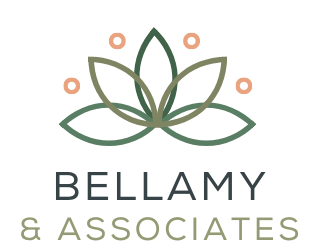What is Sober Curiosity?
Katie Bellamy, Licensed Clinical Professional Counselor (LCPC)
Sober curiosity means being curious about your relationship with alcohol or other substances. Simply put, sober curiosity means exploring a life involving a different relationship with alcohol or other substances. It can help foster positive change without the added negative self-talk of shame. You might already be Sober Curious if you notice you are asking yourself the following questions:
Why do I drink?
Is it worth it to drink this much?
Do I need alcohol to have fun?
Is drinking hurting my body?
Are the cons of my substance use outweighing the pros?
How would my life change if I didn't drink?
Benefits of Sober Curiosity
There are many benefits to incorporating sober curiosity into your life. Some of these include:
Being more present: When you're not drinking, you're not numbing yourself or avoiding difficult emotions. Instead, you're fully experiencing everything life offers, both the positive emotions and challenging moments.
Better mental health: Alcohol can also hurt our mental health, from increasing anxiety and depression to impairing cognitive function. By exploring a more mindful approach to drinking or choosing sobriety, mental health and well-being is likely to improve.
Improved relationships: Alcohol can sometimes lead to unhealthy or damaging relationships, from conflict with loved ones to risky behaviors. Especially if you’re noticing the cons outweighing the pros, having a more mindful approach to drinking or choosing sobriety, you will likely see improvement in your relationships and build healthier connections.
Incorporating Sober Curiosity into Your Life
If you're sober curious, here are some places you can start:
Take a break from drinking: Try a short-term break from alcohol, such as a month-long sobriety challenge. While Dry January is a commonly referenced one, there’s no need to wait until the start of a month or a specific month - if you feel ready, give it a go!
Explore non-alcoholic options: Try incorporating non-alcoholic drinks or other ways to socialize without alcohol. If you’re not ready to cut it out entirely, making social plans that center other activities rather than substance use is a great start. Also, having some seltzer or mocktails instead of or between drinks is a way to begin.
Include friends: You may find you have friends who have also thought about cutting back on alcohol. Broaching this topic may pave the way for normalizing these conversations and open opportunities to plan social activities that don't include alcohol.
Practice mindfulness: Continue reflecting on your relationship to substances. Sober curiosity does not necessarily mean a definitive decision to be sober. The curiosity part of sober curiosity allows you to remain mindful and aware of your thoughts and feelings around alcohol and exploring why you choose to drink. Making choices that feel aligned in the moment, practicing presence, and self-reflecting are helpful in your sober curiosity journey.
Of course, sober curiosity isn’t for everyone. If your substance is feeling problematic and closer to a substance use disorder or addiction, it may be more beneficial to more explicitly define sobriety, for example.
Overall, the sober curious movement allows space for you to explore your relationship with substances in a non-judgmental way. It helps navigate conversations and challenge societal norms. It provides a way to decrease substance use in a way that feels aligned and may be a way to get out of a mental shame cycle.
If you're interested in your continued exploration of sober curiosity and need some support along the way, Katie, Casey, & Hannah all specialize in substance use and help folks navigate substance use no matter where they are on the spectrum of harm reduction, sober curiosity, addiction, or recovery.
